Renowned director brings plays to remote ancestral home, boosts locals' prospects
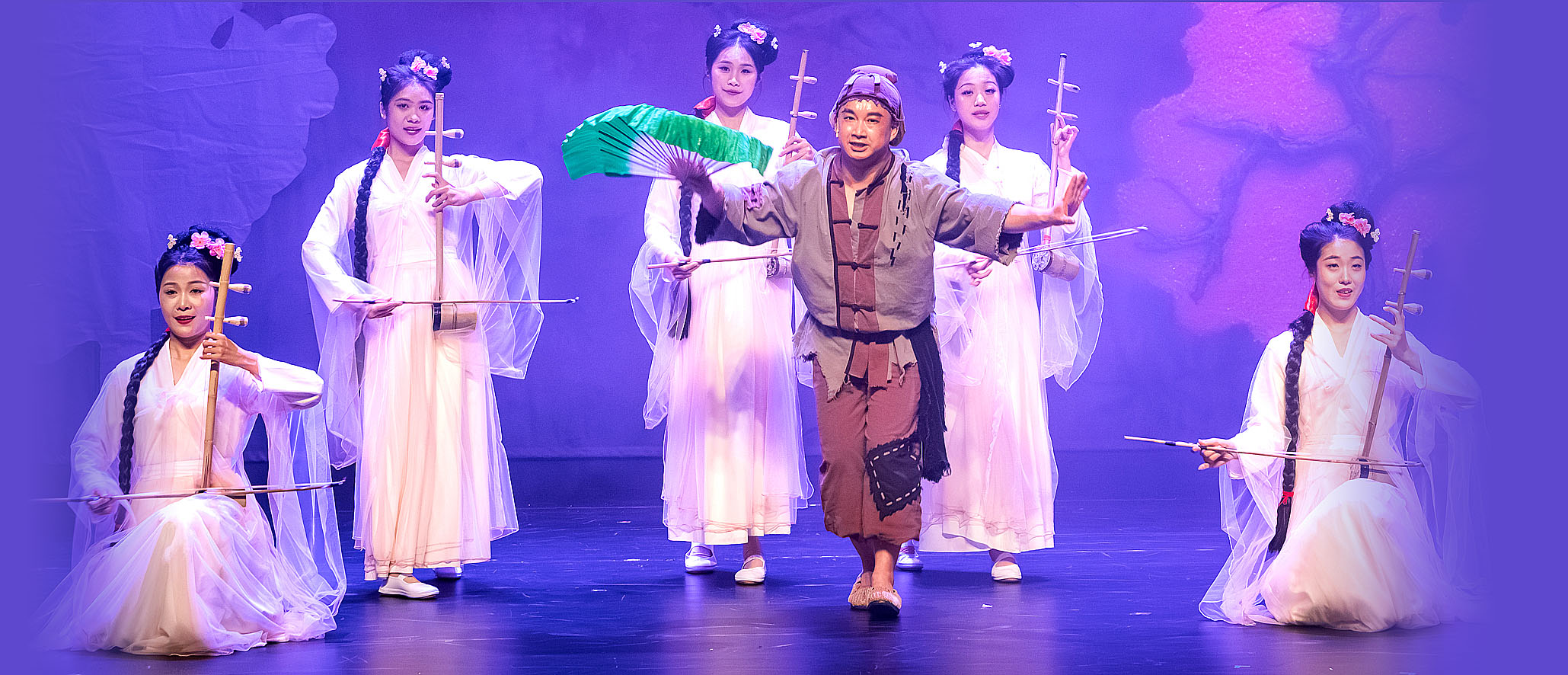
Eight years ago, Chi Tao experienced his first taste of modern theater in his hometown of Huichang, Jiangxi province. Then 22 years old, the budding performer from a caichaxi, or traditional tea-picking opera, troupe found himself baffled by the contemporary play.
Understanding it was virtually impossible, the thought of one day playing such a role seemed a distant dream to him.
But Chi now has the leading role in a localized version of Secret Love in Peach Blossom Land. The work, which combines comedy and tragedy, is a signature play of United States-born, Taiwan-based theater director and playwright Stan Lai, who helped establish a village theater in Huichang.
On weekdays, Chi performs with the Huichang Tea Harvest Opera Theater, a local troupe that specializes in Gannan tea-picking opera, a traditional form of Chinese opera that has flourished in the region for centuries. On weekends, Chi simply crosses a bridge from where his troupe performs to the Huichang Theater Village, where he transforms into a contemporary actor, performing for drama lovers from across the country.
READ MORE: A global village where the world's a stage
The changes seem unreal to the young man and he still feels a bit nervous about them. "I often doubt whether I'm good enough to deliver a perfect contemporary performance," he said.
Since the grand opening of the Huichang Theater Village in January, about 500 plays have been staged there. Drama performances from China, Italy, France, and Spain have attracted more than 3.5 million theatergoers. The small county in a mountainous area is usually associated with rice noodle production and agricultural products, but now it is being related to the arts.
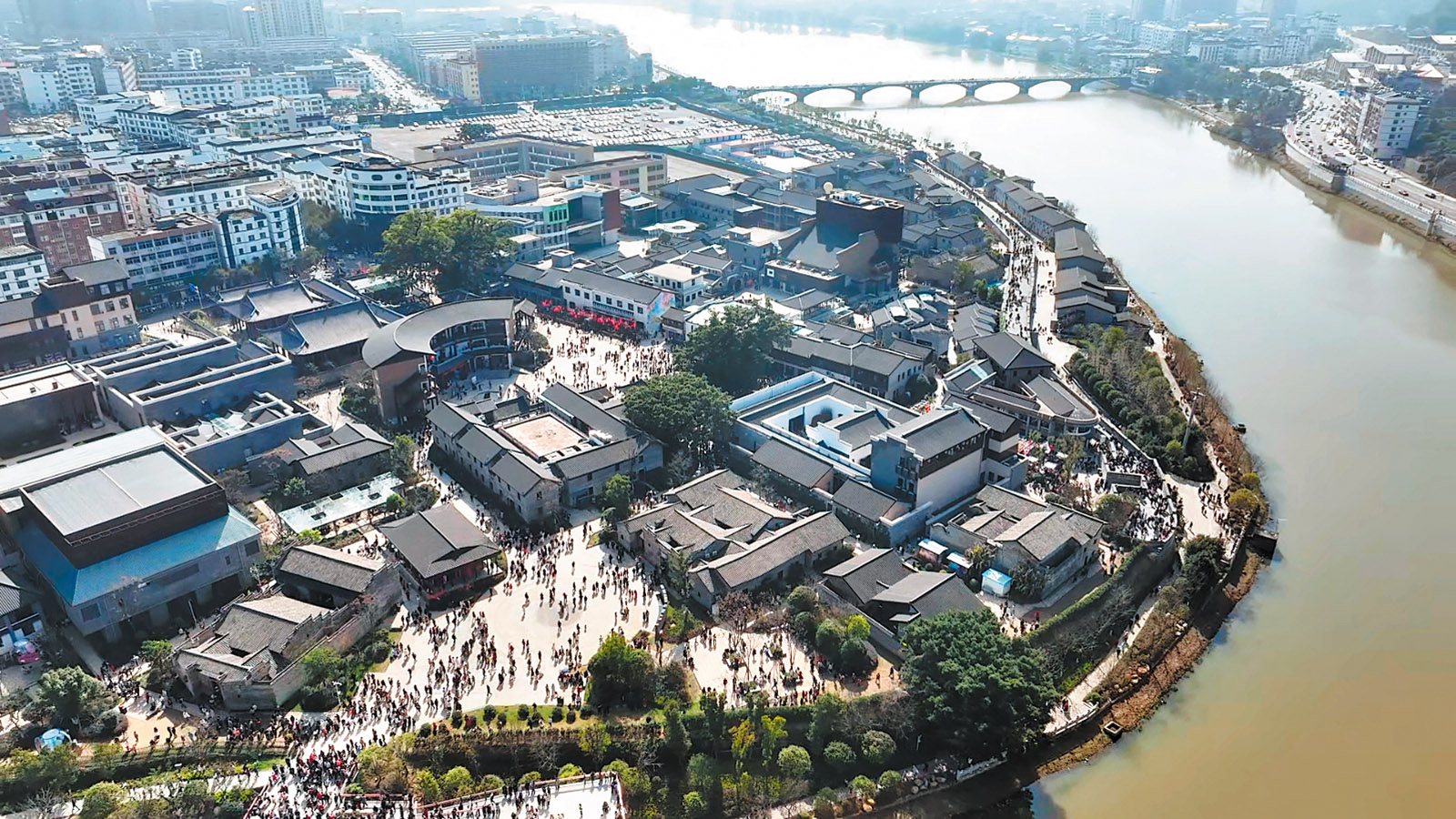
Lai said the Huichang Theater Village is an experiment to explore through art and culture other possibilities in the region, which is little known to outsiders due to its inconvenient transportation.
Lai's father was born and raised in Huichang. After his father left for Taiwan and then the US, Lai did not visit his ancestral home until 1997, when he reconnected with his uncle.
"When I returned to Huichang and imagined the roads my father walked, the alleys he passed through, and the old house he lived in, I felt a special connection to this land," Lai said.
He believed that establishing a theater village could provide a new future for local youths. Many of them had limited life choices, either working in factories in coastal cities, earning money and returning home to marry, or going to college and never coming back.
In 2015, Lai started a project to stage his own theater productions in his hometown every year. He has worked with the local government since 2017 to transform an old community into the Huichang Theater Village.
The community used to be inhabited by families, with many houses historical buildings, including the old residences and ancestral halls of prominent families. Some of these halls were renovated and repurposed as theaters. A printing factory in the area was converted into the Hui Theater, where renowned plays are often staged, including the tea-picking opera version of Secret Love in Peach Blossom Land.
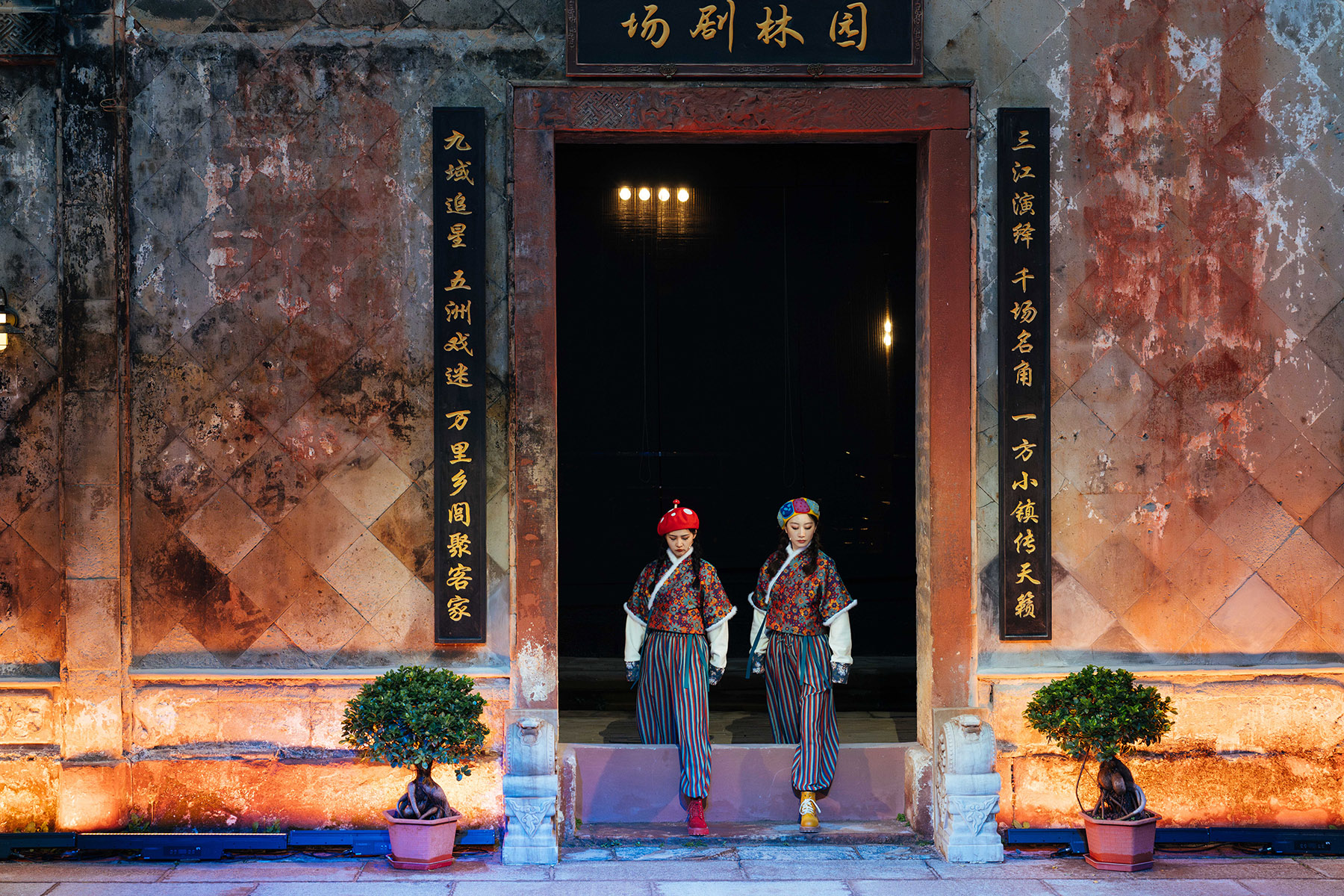
A local taste
The play made its debut in Taiwan in 1986, winning Lai great acclaim and many awards. The popular work combines a comedy, which is inspired by a utopia depicted by Eastern Jin Dynasty (317-420) poet Tao Yuanming, and a tragic love story set during the turbulent period of the 20th century.
All the actors are from the Huichang Tea Harvest Opera Theater, and none of them had any experience performing in a modern play. The comedic element of the play was integrated with the local tea-picking opera, which combines dancing and singing, and reflections on the daily lives of tea farmers.
Tea-picking opera has thrived in the mountainous regions of Jiangxi for over 400 years. It is characterized by rhythmic music, vibrant costumes, and dances featuring unique movements similar to ballet dancers standing on the tips of their toes. In addition, the actors speak in the Huichang dialect, making it relatable to local audiences.
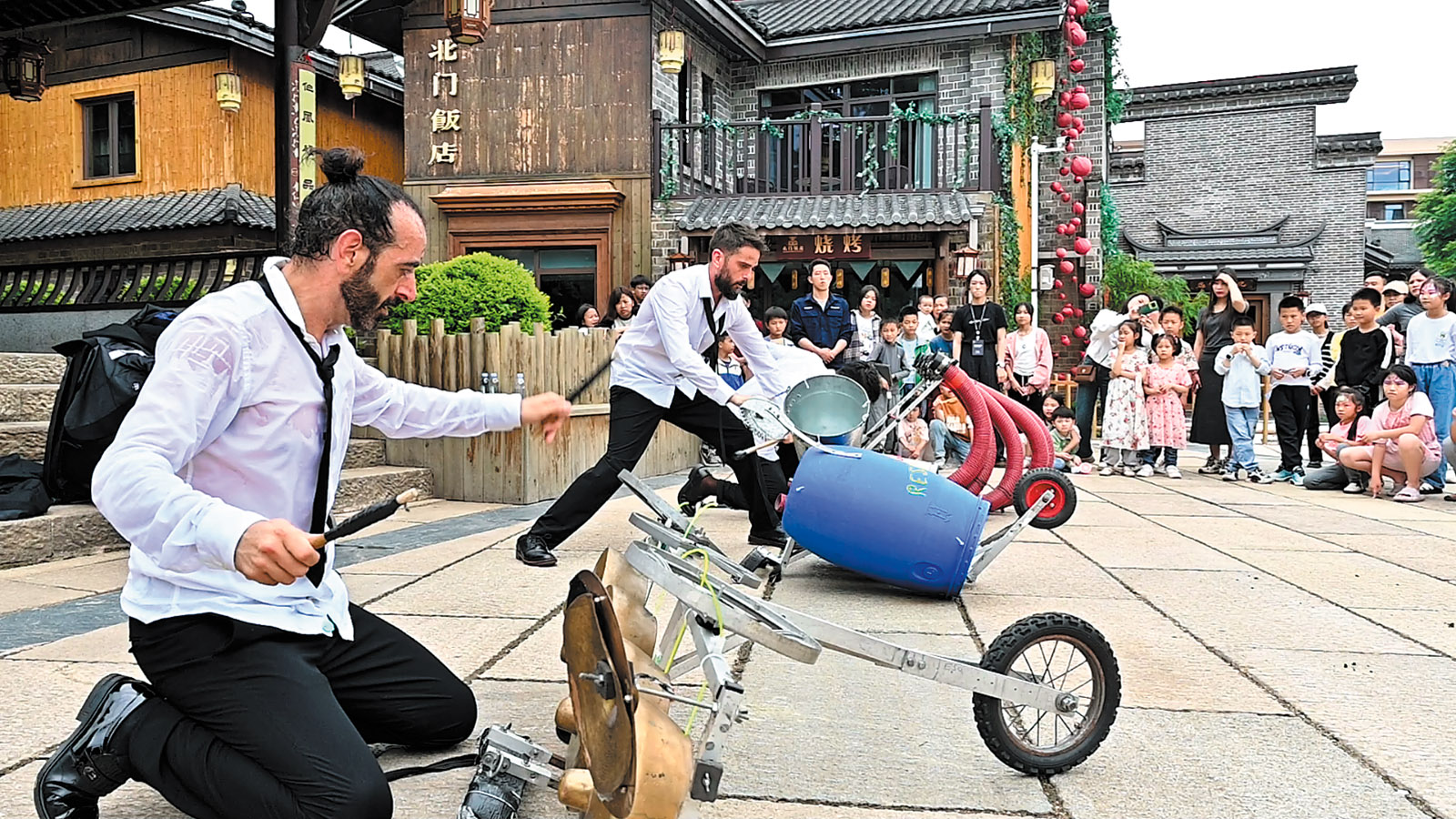
Hu Jing, director of the Huichang Tea Harvest Opera Theater, said when they performed the play for the first time in January, the audience was very quiet. He found this strange, as it was partly a comedy, and wondered why the audience wasn't laughing. Hu later learned that the locals were unfamiliar with theater etiquette and didn't know whether they should laugh. "For the locals, modern drama is new. They have learned how to appreciate this fresh art form in the past few months," he said.
It also took several months for the performers to become familiar with the new art form. From last October, members of his team spent lengthy periods during the day and at night rehearsing.
Chi, the lead actor, rehearsed 12 hours a day for three consecutive months and lost 14 kilograms. His role requires him to dance while singing, and run around constantly, which consumes a lot of energy. Sometimes, he was so exhausted that he collapsed on the stage floor and couldn't get up during the rehearsal. However, the physical exhaustion couldn't dampen his love for theater.
"It opened a new world for young performers in the county. In the theater village, we know various artforms. We are able to talk with actors from across the world. We could never imagine it before," said Chi, who started learning tea-picking opera at 13, and has never seen the world outside his home.
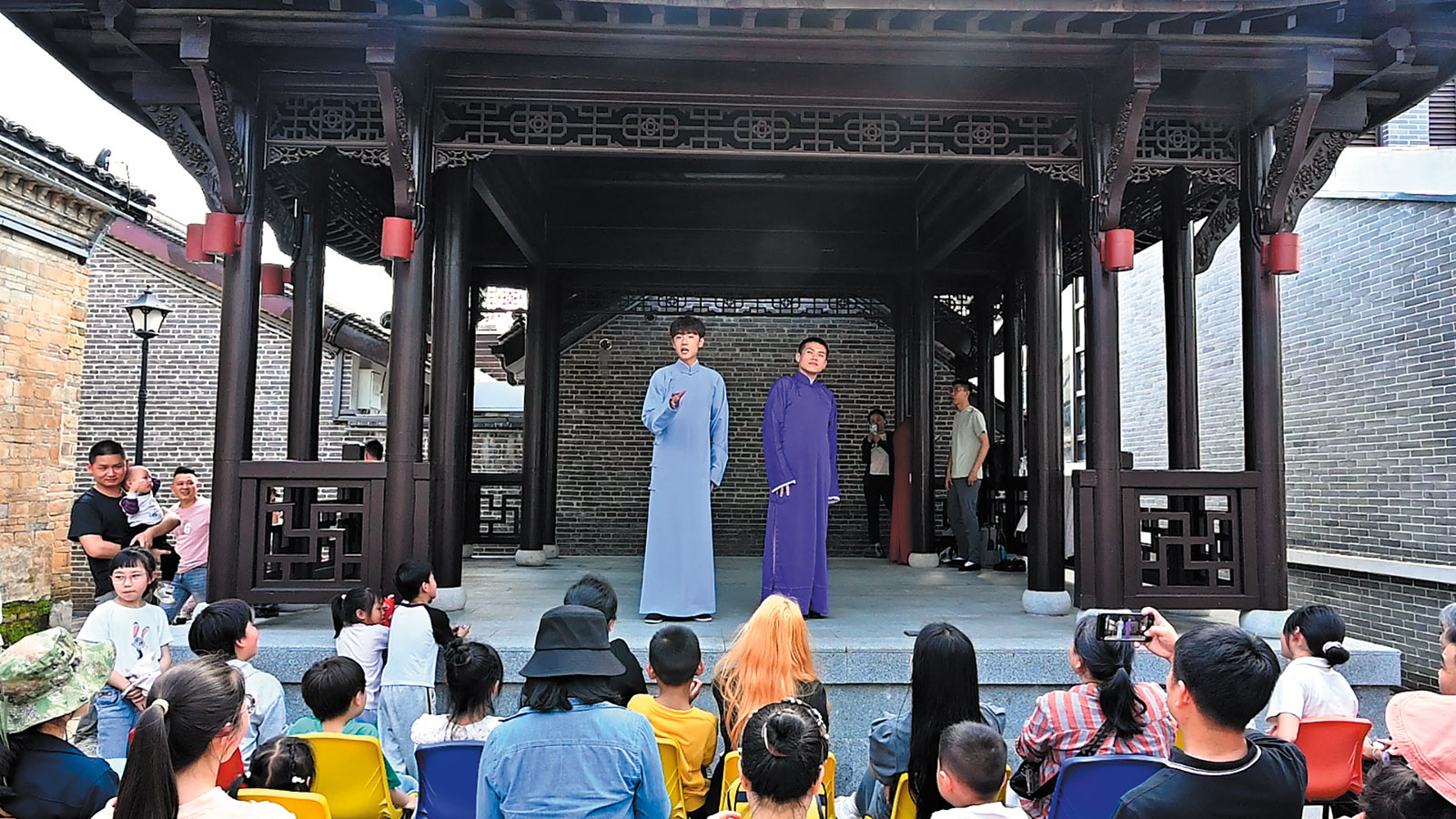
The world's stage
Since the theater village's opening in January, hundreds of performances by troupes from both home and abroad have been staged there. Street performances, including clown shows, magic, puppetry, and improvisation in outdoor spaces, have attracted large crowds of visitors. The peak number of visitors in a single day exceeded 200,000, even though the population of the county is only 530,000.
Before its opening, the team that operates the theater village was very concerned that they would not receive enough performance applications. However, to their surprise, more than 100 troupes from around the world have applied, far exceeding their expectations, said Zou Min, manager of the team.
"I was touched when a performer from a French troupe told me in January that they'd like to come again. Huichang is just a small county. These artists gathered here for theater and the passionate audiences," said Zou.
Surrounded by mountains, Huichang has no direct flights. The nearest airport is a two-hour drive away, and traveling by train requires several transfers. The lack of transportation options hasn't dampened the passion of both tourists and visiting troupes.
During the May Day holiday, more than 250,000 visitors flocked to the theater village. In June, Italy's Sardinia Theatre company will bring Macbettu to Huichang, an alternative staging of Shakespeare's tragedy Macbeth.
"It's rare for locals to see foreign faces. This year, we are getting used to those foreign artists who love to interact with us through body language," Zou said.
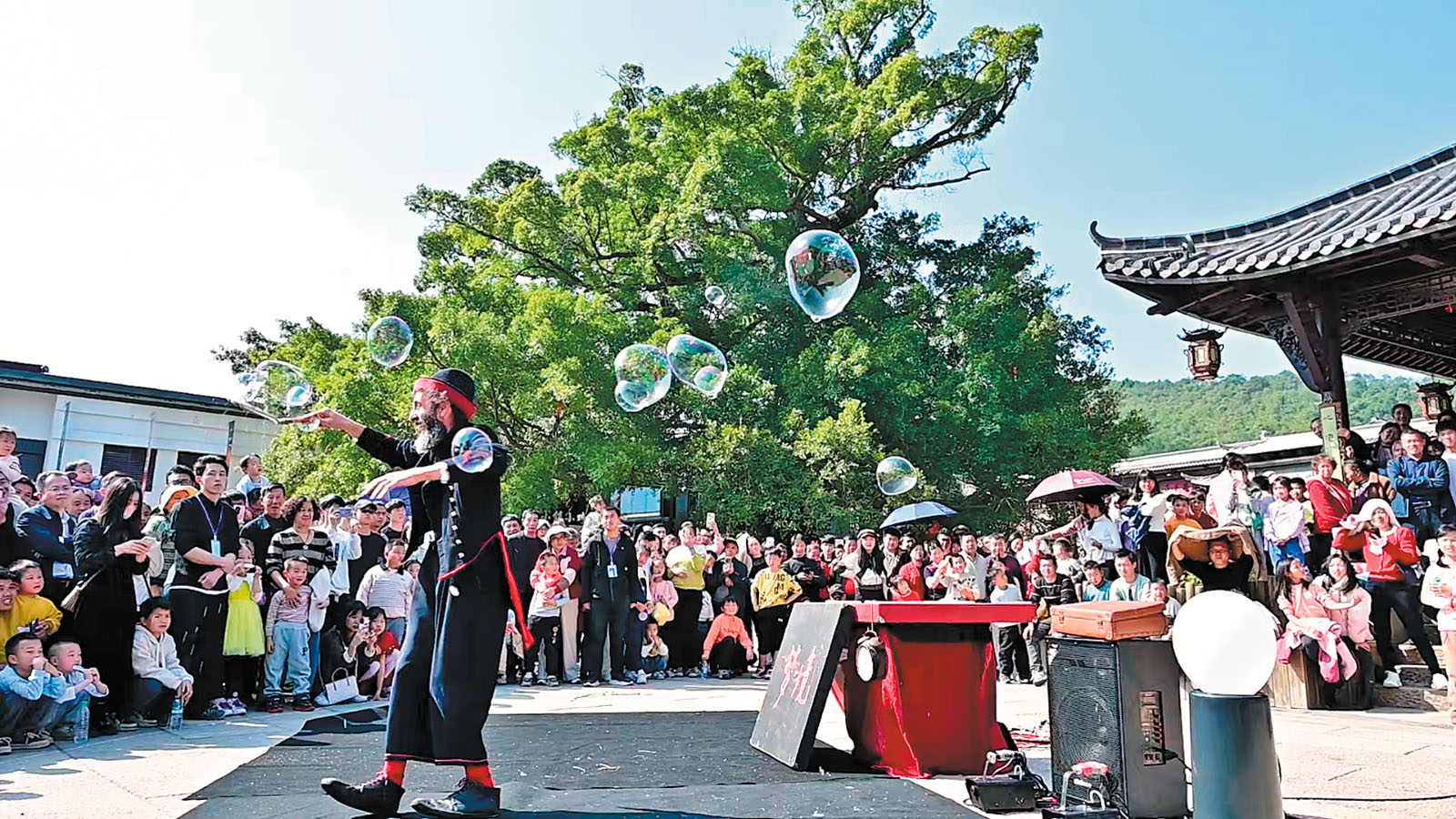
The village also offers free venues and accommodation for young artists' experimental new plays, encouraging them to present their creative ideas. Even productions by theater students can be staged at the venues as long as they are creative.
A vocational school providing courses and programs in stage art and production was set up last year, accommodating 105 students, many of whom are local youth. Training courses for theater lovers of all ages are also available.
"We try our best to explore whether the involvement of theater can bring about some changes and influence our next generation," said Zou, who is also the mother of a 14-year old boy.
Zou, a local resident, discovered the art form after collaborating with the theater village several years ago. When her son watched his first play he was thrilled and couldn't wait to see more.
"We have lots of difficulties to deal with. The theater village is still in the infancy stage. It has planted the seeds of art. Years later, the seeds will grow into big trees," said Zou, pointing to an ancient banyan tree standing in the center of the village.
ALSO READ: Date in memory sets creative stage
Under the big tree, a group of visitors interacted with a small troupe, singing and dancing. A little boy hid behind his mother, curiously watching one actor dressed in a bizarre costume.
Visitor Lin Peiying was captivated by the scene and decided to join the group. He had driven a long way from Nanchang, the capital city of Jiangxi, to spend a night immersed in theater. It was the second time he had visited the theater village in May.
He planned to watch Secret Love in Peach Blossom Land for a second time. The theaters, museums, coffee shops, and locals strolling around the village also attracted his attention.
"The village brings art and hope of a bright future to residents here. It's very vibrant and I love it. That's the power of theater," said Lin.
Contact the writers at dengzhangyu@chinadaily.com.cn


